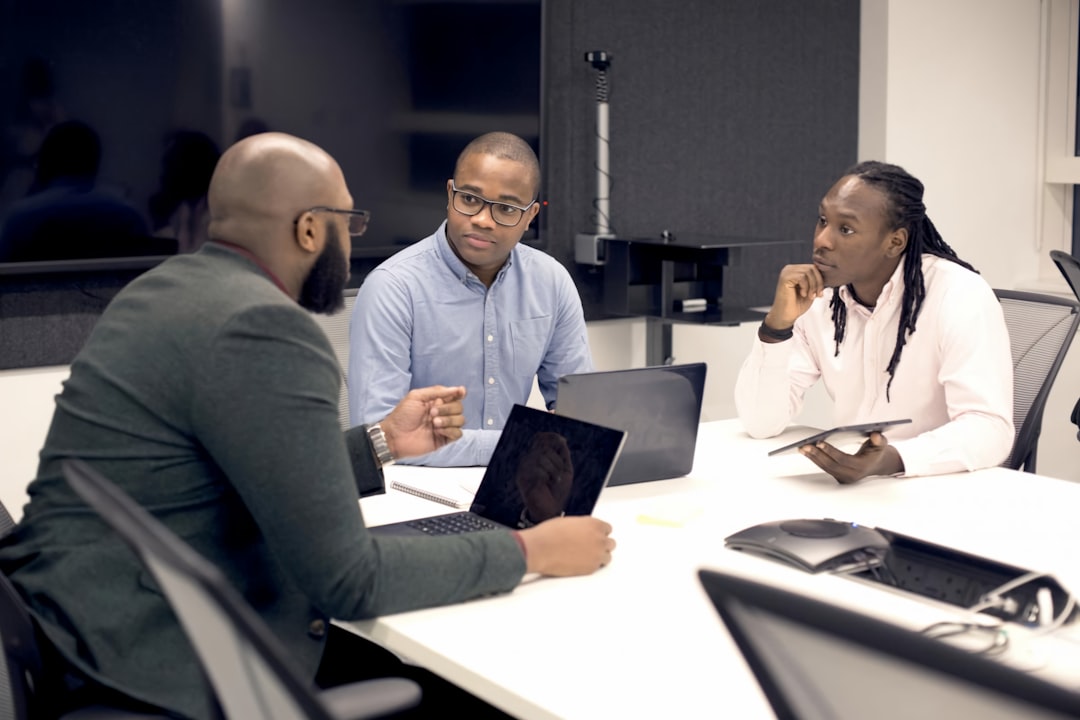
Is The “AI” Grim Reaper Coming For Your Job?
In an age where technology advances by the minute, the question on everyone's mind is whether artificial intelligence is here to enhance our lives or replace us. With AI's rapid progression, this topic has ignited debates across various industries. So, what does the future hold for our jobs in the face of this digital revolution?
The Rise of AI: A Double-Edged Sword
Artificial intelligence has been heralded as a transformative force, leading to unprecedented efficiencies across sectors. From manufacturing to healthcare, AI is enabling breakthroughs that were once confined to the realm of science fiction. On one hand, these advancements promise a brighter, more efficient future. On the other hand, they raise concerns about job displacement.
The automation of repetitive tasks is one of AI's most significant contributions. While this reduces the mundane workload for employees, it also poses a threat to positions traditionally filled by humans. The key lies in how businesses and workers adapt to these changes.
Industries at Risk: Who Should Worry?
Not all jobs are equally threatened by the encroachment of AI. Industries that rely heavily on repetitive, rules-based tasks are more susceptible to automation. For instance, data entry and routine analysis can be efficiently handled by AI, which processes information faster and with fewer errors than humans.
Conversely, professions requiring creativity, empathy, and complex problem-solving are less likely to see direct replacement by AI. Fields like art, psychology, and strategic leadership emphasize human intuition and emotional intelligence—traits not easily replicated by machines.
The Human-AI Collaboration
Rather than viewing AI as a threat, many experts advocate for a collaborative approach. AI can augment human capabilities, allowing us to focus on more nuanced tasks that require a human touch. For example, in the medical field, AI can rapidly analyze medical images, enabling doctors to dedicate more time to patient care and decision-making.
This partnership could lead to the creation of new job roles that leverage AI's capabilities while harnessing human creativity and innovation. Training and reskilling will be crucial as the workforce adapts to these emerging opportunities.
The Role of Education in an AI-Driven World
Education systems play a critical role in preparing the workforce for an AI-driven economy. As AI continues to evolve, so must our approach to education. Emphasizing STEM and digital literacy will equip future generations with the tools needed to thrive in a technologically advanced workplace.
Moreover, fostering soft skills such as communication, empathy, and adaptability will remain vital. These skills ensure that individuals can work effectively alongside AI, filling the gaps that machines cannot address.
Policy and Ethical Considerations
As AI becomes more integrated into the workplace, ethical considerations and policy frameworks must keep pace. Discussions around privacy, bias, and accountability are essential to ensure that AI's implementation is fair and equitable.
Governments and organizations must work collaboratively to establish guidelines that protect workers and encourage responsible innovation. This includes developing support systems for those displaced by AI and ensuring access to reskilling programs.
Navigating the Future: Embracing Change
The potential of AI to disrupt traditional job roles is undeniable, yet it also offers a plethora of opportunities for those willing to adapt. By embracing change and fostering a culture of continuous learning, we can pave the way for a future where human and AI coexist harmoniously.
Ultimately, the key is in our response to these changes. Will we resist and fear the "AI Grim Reaper," or will we seize the opportunity to redefine work as we know it?
Conclusion: Preparing for Tomorrow
AI is not the Grim Reaper of jobs, but rather a harbinger of transformation. By understanding the implications of AI and proactively adapting, we can ensure that it becomes a tool for empowerment rather than a threat.
As individuals, businesses, and societies, it's time to embrace the evolving landscape and prepare for a future rich with possibilities. Let's arm ourselves with the knowledge and skills necessary to thrive alongside AI, rather than against it.

